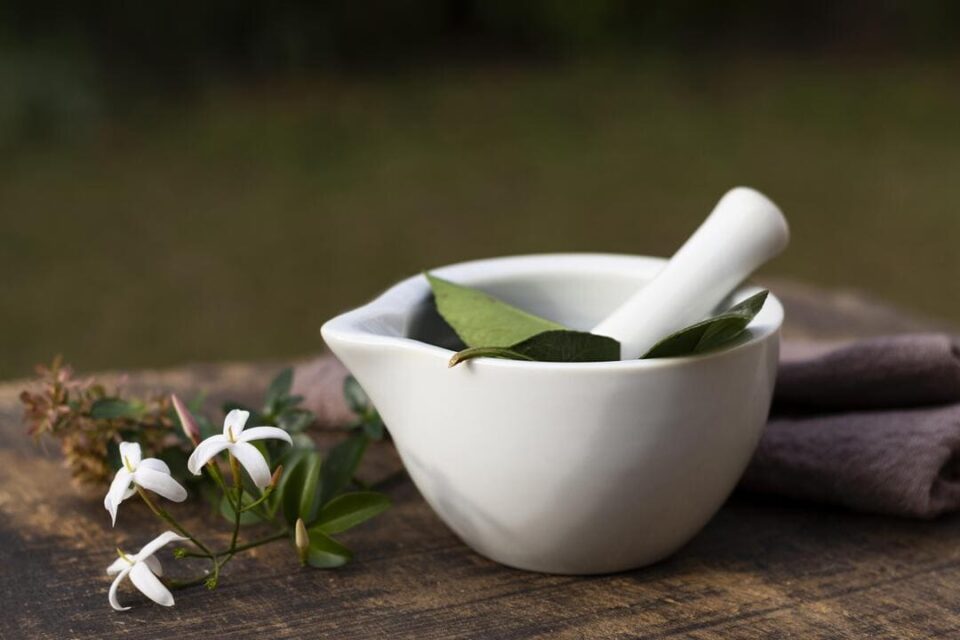As an Ayurvedic doctor, I have observed a common scene played out countless times in my clinic. After carefully examining a patient and listening to their concerns, I pen down a prescription. But the consultation doesn’t end there. I take a moment to explain the importance of Anupana, the vehicle through which the medicine should be taken. “Take this churna with honey, take this medicated ghee with warm milk, take this kashaya with warm water, take this powder with buttermilk,” I instruct, my voice filled with conviction. Some patients may find this process time-consuming, but those who have experienced the remarkable results that Ayurveda offers to follow these instructions religiously. Anupana is a unique concept in Ayurveda, one that plays a vital role in enhancing the efficacy of treatments. In this blog post, I will delve into what Anupana is, provide examples of commonly used Anupanas, discuss why it is so important, and share some fascinating research that supports its use. Join me on this journey as we explore the power of Anupana in Ayurvedic medicine.
What is Anupana?
Anupana refers to the vehicle or medium through which a medicine or food is administered. It is a substance that is consumed along with or after taking a medicine or food. The word “Anupana” is derived from the Sanskrit terms “Anu”, meaning after or along with, and “Pana”, meaning drink.
According to Acharya Sharangadhara, a renowned Ayurvedic scholar, Anupana helps the medicine spread throughout the body, just like a drop of oil quickly spreads over water. This highlights the crucial role Anupana plays in facilitating the absorption and distribution of medicinal compounds.
Examples of Commonly Used Anupanas
Ayurvedic texts mention various substances that can be used as Anupanas. Some of the most commonly used ones include:
- Sheeta Jala(cold water)
- Ushna Jala (hot water)
- Ksheera (milk)
- Madhu (honey)
- Ghrita (ghee)
- Yusha (vegetable soup)
- Takra (buttermilk)
- Mamsa Rasa (meat soup)
- Phalamla (sour fruit juices)
- Dhanyamla (fermented grain drink)
The choice of Anupana depends on factors such as the individual’s constitution (Prakriti), the nature of the disease, and the properties of the medicine being administered.
Anupana Selection Based on Dosha
Ayurveda recognizes three fundamental bodily humors or Doshas: Vata, Pitta, and Kapha. The selection of Anupana is often based on the predominant Dosha involved in a particular condition.
- For Vata disorders, Snigdha (unctuous) and Ushna (hot) Anupanas like ghee and warm milk are recommended.
- In Pitta conditions, Ruksha (dry) and Sheeta (cold) Anupanas such as cold water or buttermilk are preferred.
- For Kapha-related issues, Ruksha (dry) and Ushna (hot) Anupanas like warm water or ginger tea are suggested.
The Importance of Anupana
Anupana serves several important functions in Ayurvedic treatment:
1. Enhances Bioavailability: Anupana acts as a carrier for the medicine, facilitating its absorption and assimilation into the body. It helps the active compounds reach their target tissues more effectively.
2. Reduces Side Effects: Certain medicines can be quite potent and may cause side effects if taken alone. Anupana helps mitigate these adverse effects by balancing the properties of the medicine.
3. Improves Palatability: Some Ayurvedic preparations can have a strong taste or aroma that may be unpleasant for some individuals. Anupana can help mask these flavors and make the medicine more palatable.
4. Synergistic Effect: Anupana can enhance the therapeutic properties of the medicine through synergistic action. For example, taking Triphala powder with warm water can potentiate its digestive and cleansing effects.
Research on Anupana
Modern scientific research has begun to validate the concept of Anupana and its role in enhancing drug delivery and efficacy. A study published in the Journal of Ayurveda and Integrative Medicine found that the bioavailability of Curcumin, a potent anti-inflammatory compound found in turmeric, was significantly enhanced when administered with ghee as an Anupana compared to plain Curcumin.
Another study published in the International Journal of Pharmaceutics demonstrated that the use of milk as an Anupana improved the oral bioavailability of a poorly water-soluble drug called Carvedilol. The study concluded that Anupana could be a promising approach for enhancing the absorption of drugs with low solubility.
Personal Experience and Patient Testimonials
In my clinical practice, I have witnessed remarkable improvements in patient outcomes when medicines are administered with the appropriate Anupana. One particular case that stands out is that of a 45-year-old woman suffering from chronic joint pain. I prescribed her a combination of Ayurvedic medicines along with ginger boiled water as an Anupana. Within a month, she reported a significant reduction in pain and stiffness, and her overall quality of life improved tremendously.
Many of my patients have shared their positive experiences with Anupana. They often express surprise at how something as simple as the right vehicle can make such a profound difference in the effectiveness of their treatment.
Conclusion
Anupana is a vital concept in Ayurvedic medicine that should not be overlooked. It is not just a mere vehicle for medicine but an integral part of the treatment process. By carefully selecting the appropriate Anupana based on individual needs and the nature of the condition, we can optimize the therapeutic potential of Ayurvedic preparations.
As an Ayurvedic physician, I strongly believe in the power of Anupana and have seen its transformative effects in my patients’ lives. I encourage everyone to embrace this wisdom and work closely with a qualified Ayurvedic practitioner to determine the best Anupana for their unique circumstances.
Remember, in Ayurveda, it’s not just about what you take, but also how you take it. So, the next time you reach for an Ayurvedic medicine, pause and consider the importance of Anupana – it could make all the difference in your healing journey.

